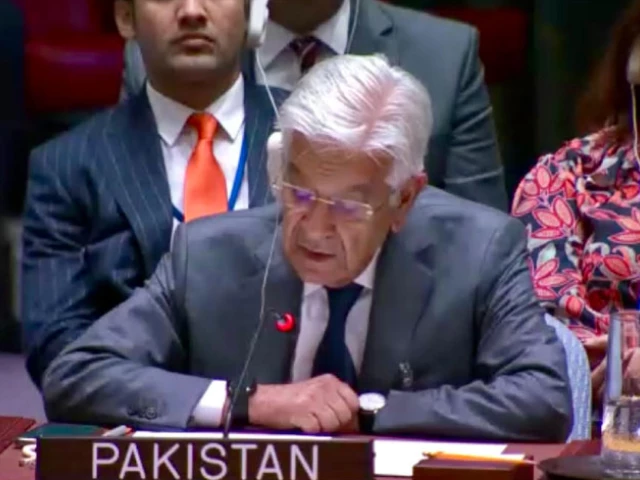The Minister of Defense, Khawaja Asif, called for the anchor of the governance of artificial intelligence in the framework and legitimacy of the United Nations, stressing that the AI must be exploited to promote international peace and development.
Speaking during the high -level open debate of the United Nations Security Council on Artificial Intelligence (AI) and international peace and security, he warned that unregulated AI, especially in military applications, could destabilize global security. “AI should not become a coercion or technological monopoly tool,” he said, adding that “applications without significant human control must be prohibited.”
Stressing the Nature for Double use of AI, the Minister of Defense described it as “the most substantial technology, capable of accelerating socio-economic progress, but also capable of deepening inequalities and destabilizing international order.”
Read: NVIDIA To invest $ 100 billion in Openai, provide data center chips in the IA major partnership
Asif has cited recent tensions between India and Pakistan, noting that autonomous ammunition and duplicate -speed cruise missiles have been used for the first time between nuclear weapons, highlighting the dangers that AI can pose in the conflict.
Declaration by He Khwaja Muhammad Asif,
The Minister of Defense with the high -level open debate of the Security Council on “Artificial Intelligence and International Peace and Security: approaching complexities, multiple facets and responsible use”
(September 24, 2025)
*********M. … pic.twitter.com/mxfqsnwi8k
– Permanent mission of Pakistan at the UN (@pakistanun_ny) September 24, 2025
Asif has stressed that states must adopt measures to prevent destabilization of the use of AI while providing preventive incentives to ensure responsible development.
“The Charter of the United Nations and international law must fully govern the development and use of AI applications,” he said, stressing that developing countries must have the capacity, access and a voice to shape AI global governance.
He warned that the AI lowers the conflict threshold by compressing decision -making deadlines, by crushing cyber, kinetics and information fields, and by making the wars more possible on the political and operational level. “We must ensure that AI is exploited to promote peace and development, not conflicts and instability,” he said, exhorting that human judgment remains central to war and peace.
By opening the debate, UN Secretary General Antonio Guterres underlined the AI transformer potential in daily life and global economies, but warned that “without railing, he can also be armed”. He stressed that deadly autonomous weapons must operate under human control and that nuclear decisions must remain in human hands.
Find out more: Global music publishers accuse the best AI companies to exploit songs protected by copyright
Experts like Yejin Choi, principal researcher at the IA Institute of the University of Stanford for humans, have urged equitable access to AI and stronger linguistic and cultural diversity in models, warning that the concentration of AI development in a few countries and businesses risks deepening global inequalities.
He concluded: “Artificial intelligence has an immense potential for progress, but without appropriate supervision and fair participation, it could become a source of global instability.”
The session of the Security Council took place on the sidelines of the 80th high-level week of the United Nations General Assembly, focusing on urgent measures to regulate AI responsible for peace, justice and human well-being.




